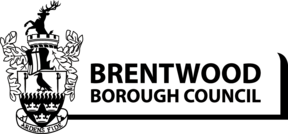What is a local search?
Local Land Charges were originally introduced to inform the buyer of any obligations which may affect them and which are enforceable by Local Authorities. These potential "obligations" are called "charges" which when created must be registered against the land. As they are registered against the land itself, they can affect successive owners who must comply with them. Hence it is imperative that potential buyers find out what and how the property they intend to buy is affected by these charges which are registered by the Council. As the Council impose these charges at a local level, they are known as Local Land Charges.
The aim of property legislation is to protect buyers of land as far as possible and to ensure this fairness, public registers have been created. Historically, the buyers of properties would undertake a Local Land Charges Search, which will reveal what charges are registered and affect the land.
The Local Land Charges Register is divided into 12 parts and will give you the full facts about the property, by revealing such information as planning permissions, whether or not trees are preserved and will tell you if there are any restrictions or plans held by the Council that could affect the value or desirability of the property.
The Local Authority is the registering authority for Local Land Charges and it is the Council's duty to register charges brought into existence, not only by themselves but by other Authorities, like Essex County Council, the Water Authority, the Highways or Environment Agency.
The Council are therefore the official custodians of official local information.
See also:
